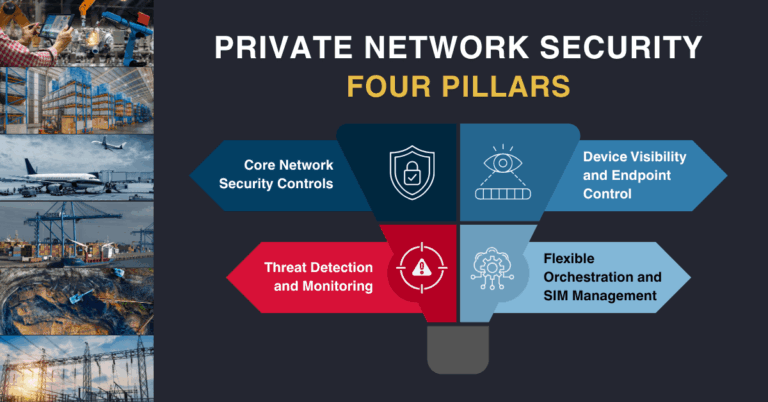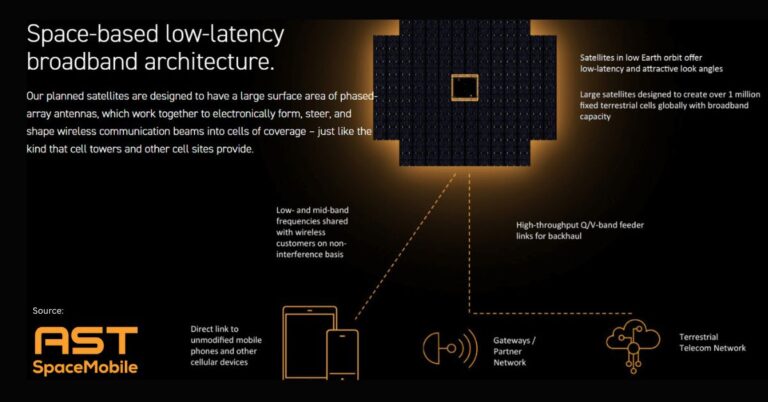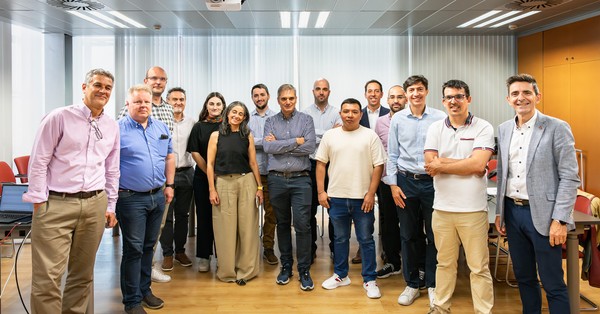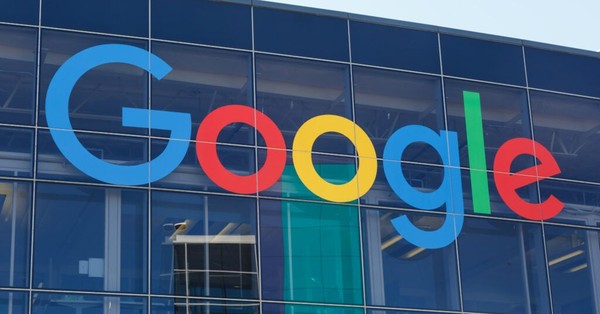BASKING RIDGE, NJ – Verizon and Centech today announced the results from the first cohort of startups and scaleups in the 5G Development Hub. Centech is a world-class business incubator and non-profit organization based in Montreal, which welcomes innovative technology projects that meet the needs of the industry, market, and society.
Launched in May 2022, the 5G Development Hub works to unlock innovation in multiple industries, including manufacturing, supply chain, transportation, smart cities, energy, and utilities.
Seven startups were selected to participate and worked alongside network experts from Verizon to create new 5G use cases and incorporate 5G and MEC-enabled technologies into their services. Selected companies tested their innovative solutions on Bell’s 5G network and mobile edge computing platform and benefited from Centech’s mentoring on business development and growth strategy.
“Verizon has a vested interest in the 5G future, and we see an extraordinary opportunity to encourage entrepreneurs to leverage the advanced capabilities that 5G offers,” said Jeff Frantz, Executive Director of Ecosystem Development at Verizon. “These programs enable startups to test, explore and create the products and ecosystems of tomorrow.”
“The 5G Development Hub brings together Canada’s booming startup ecosystem and the expertise of leading 5G and MEC providers,” said Richard Chénier, General Director at Centech. “5G is important for the future of innovation and this first cohort has proven to be successful. We look forward to continuing to create a space where we maximize the potential of startups through the use of 5G while equipping them to transform key sectors such as manufacturing, energy and smart cities.”
The 5G cohort companies and the results achieved through the 5G Development Hub include:
- Kognitiv Spark creates Mixed Reality (MR) solutions with their robust MR platform, RemoteSpark. Kognitiv Spark has helped promote the adoption of MR in sectors where the technology can have a significant impact, including nuclear and power utilities, aerospace and defense, and increasingly in the public sector. Kognitiv Spark 5G Application: Enhances overall performance of the RemoteSpark MR platform, using the speed and throughput 5G can offer to achieve higher resolution video calls and near-real-time transfer of digital assets.
- I-5O has built a deep learning-powered computer vision platform that helps manufacturers track, measure, and improve their manual production operations in near-real time. I-5O 5G Application: Continuously generates actionable insights on production operations and detects process deviations in near real-time. It uses 5G to expand where cameras can be used, not just where an Ethernet connection is available.
- Haply Robotics develops 3D haptic controllers that replicate tactile sensory input, allowing users to interact with an environment through a screen or VR headset. These technologies can be used to control industrial robots, support workforce training, and remotely supervise vehicles that interact with physical environments. Haply Robotics 5G Application: Leverages the low latency that 5G can provide, plus the adaptability of MEC to enable near real-time control of robots with haptic feedback.
- SmartCone is an IoT Connected Ecosystem company servicing a wide array of use cases, including intelligent transportation systems, asset tracking, and mining. SmartCone has created an open architecture system integration platform that includes the hardware and software components. SmartCone has multiple patents and its own full-stack embedded programming language. SmartCone 5G Application: Moves processing and sensor fusion capabilities from the SmartCone device to MEC. Leveraging 5G alongside MEC can allow for greater communication and information sharing between devices.
- Edgecom Energy provides custom hardware and software solutions to reduce energy costs and emissions for large energy users, helping decision-makers understand, improve and control how they consume energy, water, and natural gas. Edgecom Energy 5G Application: The lower latency that 5G can provide makes it possible to not only monitor energy use but also control connected devices in near real-time, allowing for integration with the grid for greater resiliency, demand response, and frequency regulation.
- FuseForward offers an edge-secure data and analytics platform designed for organizations with multiple applications, data sources, and diverse user groups. The company’s integrated, scalable and secure platform provides actionable insights and analysis capabilities supporting both near-real-time and historic reporting. FuseForward 5G Application: Expands smart campus analytical capabilities by integrating sensors in areas without a wired connection and layering in live video analytics streamed across 5G and processed using MEC.
- Peytec is an Industrial IoT and AI company that builds and sells hyper-accurate location tracking and sensing solutions. Peytec specializes in inventory tracking, asset management, and real-time quality control. Peytec mainly serves industrial sectors, including mining, manufacturing, and agriculture. Peytec 5G Application: Virtualizes the master scheduling nodes using low latency of 5G and MEC to reduce hardware costs for asset tracking while also simplifying deployment and maintenance.
Verizon News Feed Read More







































